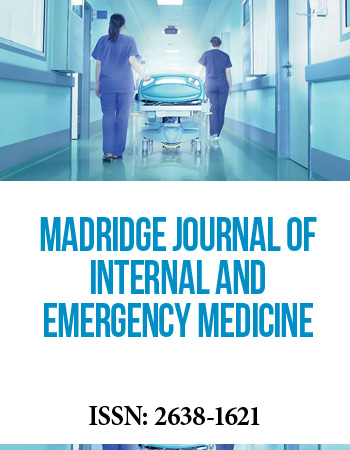Editorial Article
The Law and Medical Care-A Psychoanaltic Vestigial Opinion
Adjunct Assistant Professor, Department of Psychiatry, Schulich School of Medicine and Dentistry, Western University, Canada
*Corresponding author: Samuel Sussman, Adjunct Assistant Professor, Department of Psychiatry, Schulich School of Medicine and Dentistry, Western University, Canada, E-mail: SamSussman@physicianscanada.net
Received: October 24, 2021 Accepted: November 03, 2021 Published: November 10, 2021
Citation: Sussman S. The Law and Medical Care-A Psychoanaltic Vestigial Opinion. Madridge J Intern Emerg Med. 2021; 5(1): 158-158. doi: 10.18689/mjiem-1000135
Copyright: © 2021 The Author(s). This work is licensed under a Creative Commons Attribution 4.0 International License, which permits unrestricted use, distribution, and reproduction in any medium, provided the original work is properly cited.
Abstract
That the law and medicine be it revolving around the observation and care of patients to the administration of health care institutions are inextricably linked has become a truism. This has become an operational reality whether the care of patients in the past has been characterized by religious orders of by governmental mandate. Thus, the manifest functions have taken on a rather sterile unemotional dimension and explanation.
Keywords: Psychiatry; Medicine; Patient care.
Introduction
This opinion piece however will delve into the motivation, latent functions and to an extent the psychoanalytic dimensions of the interplay between the legal profession, the patient, and the medical care provider. We are all familiar with the empirical reality of lawyers eschewing family law in familial custody battles and in the overall care provided to patients. The commonly heard refrain from lawyers is that the clients are too emotional and that the process of engagement is fraught with irrational and subjective elements which depict the plaintiffs in an unfavourable ego dystonic manner.
The result is that impressionable young lawyers steer clear of and shun “family law”. The author wishes to hypothesize a dimension, which does require further research, that this rationale is an ego alien defensive mechanism which in effect denies empirical conscious, preconscious, and unconscious phenomenon.
It is hypothesized that this avoidance is related to the psychic displacement of anxiety and indeed anger which the lawyer himself/herself has dealt with or is dealing with? This can be seen in custody battles in divorce cases and the corresponding unconscious oedipal issues which these feelings bring up in the “legal agent”. A few case records in law school will bring these issues up to the unsuspecting law student. Is it no wonder that they avoid FAMILY LAW.
Correspondingly in Emergency medical situations and in the occurrence of patient admissions all the medical care givers be they orderlies nurses and physicians despite their attestations to the contrary that they are always engaged in objectivity and that is the “name of the game” are really unaware of conscious, preconscious and unconscious phenomenon engaged in an interplay of complex dimensions in the whole panoply of patient care, observation and treatment.
This author reiterates that further research and blanket awareness is a deficiency currently and requires yeoman investigation so that objectivity in the service of patient care is delivered.


